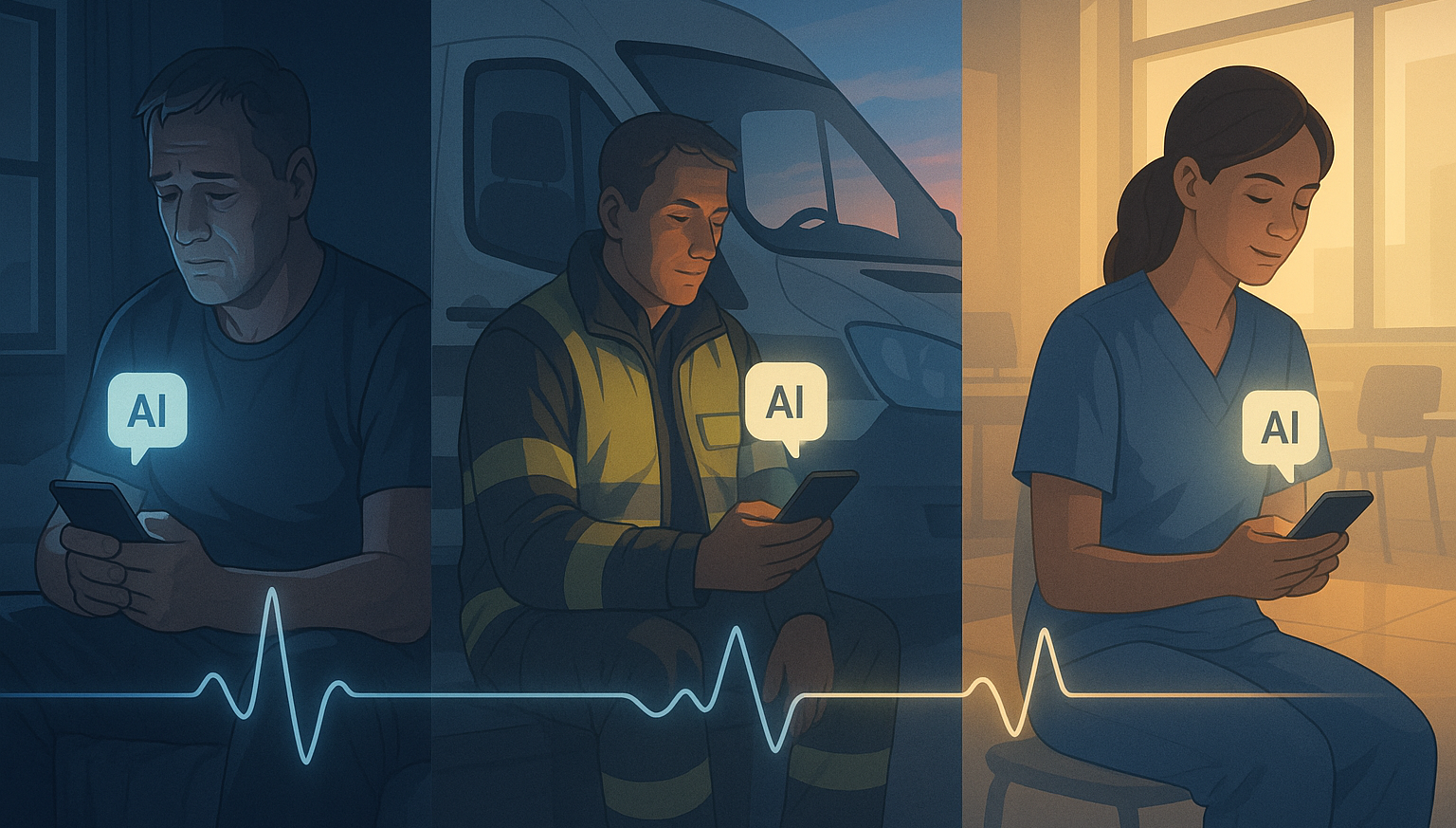Mental health services around the world are under pressure. Demand is skyrocketing, particularly for trauma-informed care, but access remains limited. Waiting times are long, especially in public systems. Cost is a barrier for many. And there simply aren’t enough therapists to go around.
At the same time, stigma continues to hold people back. Many veterans, first responders, and frontline professionals still feel uncomfortable asking for help—or don’t want to share their trauma with a stranger.
This is where technology, when applied thoughtfully and responsibly, can step in. AI has a unique ability to scale. It doesn’t get tired. It doesn’t log off. And when built with care, it can adapt to each individual’s needs, behaviours, and communication style.
Sentra is built on this belief. It doesn’t just deliver a generic chatbot experience. It listens—using language patterns, behavioural signals, and user feedback to personalise its responses. It knows when to offer a grounding technique, when to provide silent space, when to share a breathing exercise, and when to simply be there.
Unlike traditional systems that require appointments, referrals, or long waits, Sentra is available instantly. That’s important because PTSD and trauma don’t wait for office hours. They surface at 2am. They hit just after a call-out. They linger long after the event.
In terms of cost and access, AI also offers a breakthrough. Where traditional therapy might cost hundreds per session, a digital support companion can deliver continual support at a fraction of the cost—making it scalable for organisations and accessible to individuals.
At Sentra, our goal is not to replace human care, but to fill the space between it. To offer something real, empathetic, and effective that meets people where they are—any time, any place.





